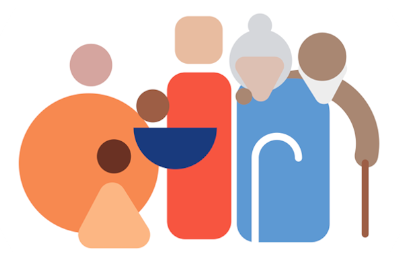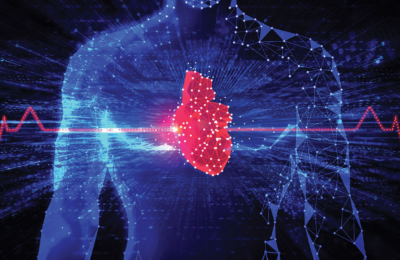The UNCAN-Connect project aims to establish an interoperable, secure, and sustainable data-sharing infrastructure to strengthen data-driven approaches in cancer research across Europe. The project seeks to make dispersed clinical, genomic, imaging, and quality of life data—currently stored in varying standards across the continent—accessible, shareable, and analysable in compliance with ethical, legal, and technical requirements. To achieve this, a “federation of open-source data federations” will be established, fully aligned with regulations such as the European Health Data Space (EHDS) and the GDPR, and embracing the principles of open science. The platform will be developed around use cases focused on six priority cancer types: paediatric cancers, pancreatic, lung, lymphoid, ovarian, and prostate cancers. Through this effort, a multi-stakeholder collaboration environment will be fostered among researchers, SMEs, clinicians, health authorities, and citizens. AI-powered solutions and innovative data analysis methods will support early detection, monitoring, and personalized treatment of cancer. By strongly integrating with existing European research infrastructures (e.g., BBMRI, EUCAIM, EOSC4Cancer), the project will facilitate cross-border collaboration and generate transformative impact in cancer research.
Within the scope of the UNCAN-Connect project, SRDC will be responsible for developing software solutions that enable data provider institutions to transform their clinically structured and semantically diverse datasets into research-ready formats, aligned with standards such as HL7 FHIR and OMOP. SRDC will deliver high-performance and scalable data transformation services that allow institutions to generate harmonized datasets from their systems without requiring manual intervention. Additionally, with the support of LLM-based features developed in the project, users will be able to define data transformation rules more efficiently and securely and generate dataset definitions in a semi-automated way. These solutions will be tightly integrated with the UNCAN.eu platform, facilitating the onboarding of new systems and enabling federated AI and data analytics studies on the platform. SRDC will also actively contribute to technical validation, testing of data flows in pilot scenarios, integration with platform infrastructures, and metadata cataloguing activities. Furthermore, it will support the deployment of secure and standards-compliant data access components, while ensuring adherence to patient privacy principles.
| 1. | University of Tartu | Estonia |
| 2. | Tallinn University of Technology | Estonia |
| 3. | NEC Laboratories Europe GmbH | Germany |
| 4. | LINAC-PET Scan Opco Limited | Cyprus |
| 5. | Alia Sante | France |
| 6. | Chino SRL | Italy |
| 7. | SRDC | Turkey |
| 8. | University of the Basque Country | Spain |
| 9. | Arcada University of Applied Sciences | Finland |
| 10. | Artificial Intelligence Expert SRL | Romania |
| 11. | Instituto Pedro Nunes (IPN) | Portugal |
| 12. | University Hospital Heidelberg | Germany |
| 13. | Copenhagen University | Denmark |
| 14. | Fundació Sant Joan de Déu | Spain |
| 15. | Hospital Sant Joan de Déu | Spain |
| 16. | Ivano-Frankivsk National Medical University | Ukraine |
| 17. | Helsinki University Hospital (HUS) | Finland |
| 18. | Karlsruhe Institute of Technology | Germany |
| 19. | UMIT Tirol - Private University for Health Sciences and Technology | Austria |
| 20. | University of Coimbra | Portugal |
| 21. | ECHR Limited Liability Company For Services | Croatia |
| 22. | Athens Research Centre (ARC) | Greece |
| 23. | National Institute of Biology | Slovenia |
| 24. | GOTEL Oncology Group for the Treatment of Lymphoid Diseases | Spain |
| 25. | Eurecat | Spain |
| 26. | Sciensano | Belgium |
| 27. | Servicio Madrileno De Salud | Spain |
| 28. | Biomedical Research Foundation of the Puerta de Hierro University Hospital in Majadahonda | Spain |
| 29. | German Cancer Research Center | Germany |
| 30. | Ministry of Health ESPA | Greece |
| 31. | Tampere University of Applied Sciences SR | Finland |
| 32. | Biobanking and Biomolecular Resources Research Infrastructure Consortium (BBMRI-ERIC) | Austria |
| 33. | University Hospital Schleswig-Holstein | Germany |
| 34. | University of Lubeck | Germany |
| 35. | Region Hovedstaden | Denmark |
| 36. | Greek Patients' Association | Greece |
| 37. | General Cancer Oncology Hospital of Athens Agios Savvas | Greece |
| 38. | Leiden University | Netherlands |
| 39. | Tervise Arengu Instituut | Estonia |
| 40. | Stichting EGI | Netherlands |
| 41. | Solita Oy | Finland |
| 42. | Institute of Research and Innovation Parc Tauli | Spain |
| 43. | Park Taulí University Hospital | Spain |
| 44. | University Medical Center Groningen | Netherlands |
| 45. | Holos SA | Portugal |
| 46. | European Institute of Oncology SRL | Italy |
| 47. | Coimbra Local Health Unit EPE | Portugal |
| 48. | AGH University of Science and Technology in Krakow | Poland |
| 49. | Vall D'hebron University Hospital Foundation – Research Institute | Spain |
| 50. | Masaryk University | Czechia |
| 51. | Swiss Institute Of Bioinformatics | Switzerland |
| 52. | CSEM Swiss Center for Electronics and Microtechnology SA | Switzerland |
| 53. | Insel Gruppe AG | Switzerland |









